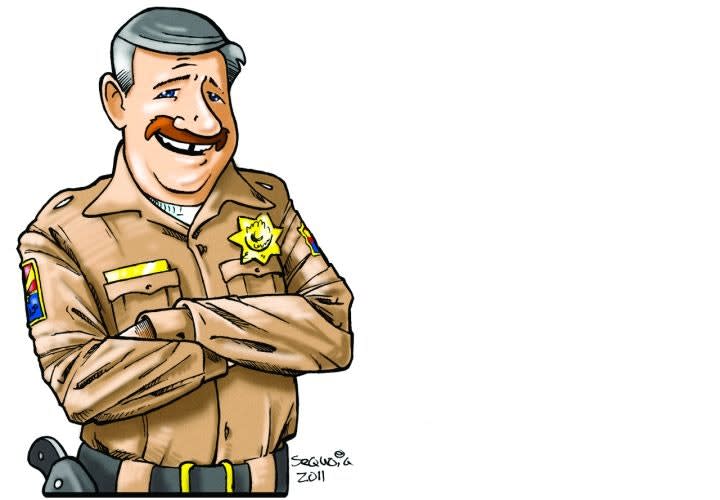The other day I was reading about a shootout in Florida where a bad guy picked on the wrong crimefighter and paid the price, when I noticed a headline about the world-ending asteroid coming in the year 2036. Named Apophis, this bad boy even has its own Website and a following of what appears to be not just scientists but groupies as well.
Now don't get me wrong, I'm a big sci-fi fan. But I think following and worrying about an asteroid is a little bit creepy. Some Russian scientists claim it has about a 1 in 400 chance of hitting earth. That is pretty high, but American astronomers give this rock about a four in a million chance of crashing into Earth and ruining a whole bunch of folks' weekend. Eerily, the asteroid groupie Website even sells T-shirts for Apophis, which means "uncreator" in ancient Greek…Creepy, huh?
As I went back to reading the headlines it suddenly hit me that you, my crimefighters, are far more at risk from the type of incident in Florida than the rather spectacular fate of getting hit by Apophis or any other space rocks or debris. The problem we have as humans is we aren't real good at evaluating risk, and if we don't evaluate it properly we can't compensate for it.
See, if you don't perceive a risk you can’t really do things to avoid it or harden the target of that risk. Worse still, often we know about a risk but we stop avoiding or shielding ourselves from a threat because routine has daily taught us that the odds of that specific threat or risk are about as likely as that asteroid hitting our patrol vehicle with us in it.
The problem is we often see life as a basic statistical problem and we figure we can average our risks day to day, call to call, and just steel ourselves for what we believe are high-risk activities. Taleb Nassim, in his book "The Black Swan," describes the life of a turkey as a great example of how past experience isn't a good model for future events. Up until its last day the turkey has no experience other than the farmer as a benevolent host providing all its needs without fail…then comes Thanksgiving.
Nassim's point is, don't predict your next stop or call will involve only "yes" people and low threats. As he says, "Just because you haven't died yet doesn't mean you're immortal!" I don't mean to scare you…oh, wait…I do mean to scare you enough to keep your guard up, your armor and seat belt on, and your head in the game all the time.
One of the surest ways to fail is to think that someone or some situation is predictable. Getting your mind right going into every situation is essential, and too often we are better at "thinking" about the threat of an asteroid than the threats we face on the traffic stop we are initiating.
In "The Flaw of Averages," Sam Savage (great name) explains we often think of statistics as simple things and too often those of us who took statistics classes are some of the worst at evaluating risk. I often hear statistics such as the vast majority of gunfights occur within 10 feet. But where does that stat come from? Officer killed studies, not officer-involved-shooting studies. This can cause us to miss key training points and maybe set us up to fail to perceive threats we should be prepared for.
Savage points out how during WWII, aircraft armor was reinforced based on bullet hole locations from returning aircraft, and the "improvements" didn't make any difference. The problem was the holes that mattered were the ones in all the aircraft that didn’t get home to be analyzed.
Every year approximately 60,000 assaults occur against crimefighters. Add to that all the accidents officers experience and one soon realizes this is a dangerous job, and your mind is the best way to be prepared. So here's an idea. From now on whenever you are going on shift, on a call, on a stop, on a raid, or simply going into a convenience store for a Squishee, think, "Complacency will not get me today. I will be prepared."
Simple, right? So try to make that mindset a habit, a powerful habit you keep from now on…at least until that asteroid comes.
Dave Smith is the creator of "Buck Savage" and a retired law enforcement officer from Arizona. Currently, he is the lead instructor for Calibre Press' Street Survival seminar.













